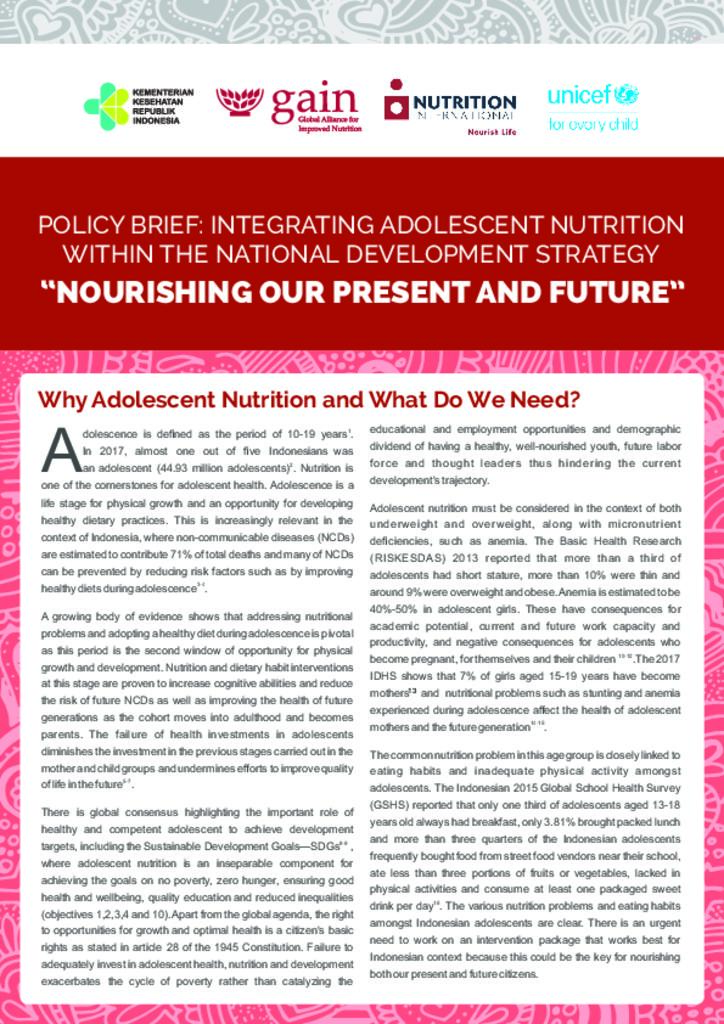Adolescence is defined as the period of 10-19 years. In 2017, almost one out of five Indonesians was an adolescent (44.93 million adolescents). Nutrition is one of the cornerstones for adolescent health. Adolescence is a life stage for physical growth and an opportunity for developing healthy dietary practices. This is increasingly relevant in the context of Indonesia, where non-communicable diseases (NCDs) are estimated to contribute 71% of total deaths and many of NCDs can be prevented by reducing risk factors such as by improving healthy diets during adolescence.
A growing body of evidence shows that addressing nutritional problems and adopting a healthy diet during adolescence is pivotal as this period is the second window of opportunity for physical growth and development.
Nutrition and dietary habit interventions at this stage are proven to increase cognitive abilities and reduce the risk of future NCDs as well as improving the health of future generations as the cohort moves into adulthood and becomes
parents. The failure of health investments in adolescents diminishes the investment in the previous stages carried out in the mother and child groups and undermines efforts to improve quality of life in the future.
There is global consensus highlighting the important role of healthy and competent adolescent to achieve development targets, including the Sustainable Development Goals - SDGs8-9, where adolescent nutrition is an inseparable component for achieving the goals on no poverty, zero hunger, ensuring good health and wellbeing, quality education and reduced inequalities (objectives 1,2,3,4 and 10).
